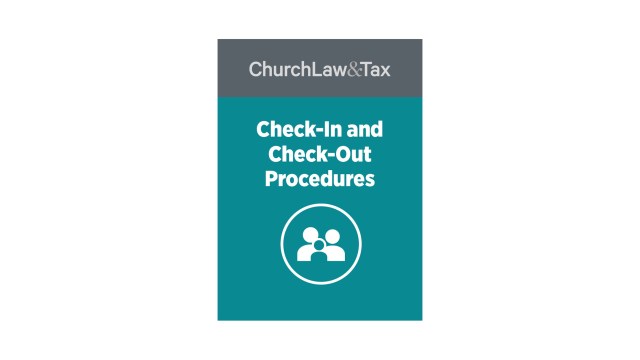• Can a member of an unincorporated church sue the church for injuries received on church property? That was the issue before a Texas appeals court. A member of a Congregational church was taking her minor son to a church child-care program. As she entered the educational building (on the church premises), she slipped and fell, resulting in injuries to her back. She later sued the church, alleging that her injury was caused by the church’s negligence. Specifically, she alleged that the church had been negligent in permitting the tile floor in the educational building to become slippery from moisture, and in failing to warn her of the dangerous condition. The victim had been a member of the church for 4 years, and she was on the church’s administrative board. At the time of the accident, the church was unincorporated (it incorporated a few years following the accident). A trial court dismissed the lawsuit against the church. It concluded that an unincorporated church could not be sued by one of its own members. It further ruled that the church could not be liable for the injuries on the ground that it incorporated after the accident. The victim appealed this decision. A state appeals court agreed with the trial court’s decision. The court acknowledged that Rule 28 of the Texas Rules of Civil Procedure permits unincorporated associations to be sued directly, but it concluded that this rule did not permit members of an unincorporated church to sue the church on the basis of injuries caused by the negligence of fellow church members or agents. The court observed:
[T]he law prohibits a member of an unincorporated association from bringing a cause of action for negligence against the association. It has been held that the members of an unincorporated association are coprincipals, and generally, such an association cannot be held liable to one of its members for the wrongful act of another member or agent of the association. The rationale for this rule is that the injured member and the association are regarded as coprincipals, and the tortfeasor [i.e., the person causing the injury] as their common agent. Consequently, the wrongful conduct of the agent is imputed to the plaintiff for purposes of his action against the association …. In this case, [the victim] has alleged that, as a direct result of the negligence or gross negligence of the pastor and employees of the church, she was injured. In other words, she alleges that the church, in its operation of the day care center, failed to provide a reasonable standard of care. Based on such allegations, we find any negligence alleged against fellow members and agents of the association are imputed [to the victim], thus leaving her in the untenable position of attempting to sue herself. Therefore, we hold that the trial court did not err in determining that [she] lacked standing to bring suit against the church because she was a member.
The court rejected the victim’s claim that the church could be sued because it incorporated after the accident. It noted that a “successor corporation” is liable only for the lawful debts and obligations of the former organization. And, since the former unincorporated church was not liable for the victim’s injuries, then there was no liability for the successor church corporation to assume. Cox v. Thee Evergreen Church, 804 S.W.2d 190 (Tex. App. 1991).
See also the feature article in this newsletter entitled The Personal Liability of the Members of an Unincorporated Church for the Church’s Liabilities.
© Copyright 1991, 1998 by Church Law & Tax Report. All rights reserved. This publication is designed to provide accurate and authoritative information in regard to the subject matter covered. It is provided with the understanding that the publisher is not engaged in rendering legal, accounting, or other professional service. If legal advice or other expert assistance is required, the services of a competent professional person should be sought. Church Law & Tax Report, PO Box 1098, Matthews, NC 28106. Reference Code: m77 m86 m58 c0591

